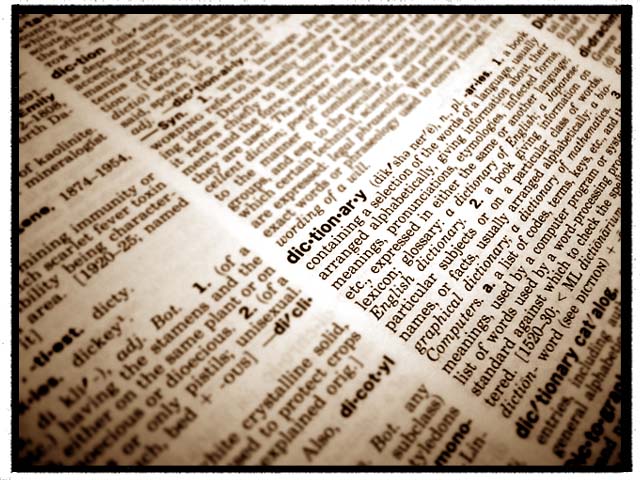Julie Moore , a lexicographer for the new Oxford Learner’s Dictionary of Academic English, looks at the benefit of using dictionary skills in academic writing.
, a lexicographer for the new Oxford Learner’s Dictionary of Academic English, looks at the benefit of using dictionary skills in academic writing.
In ELT, we tend to approach grammar and vocabulary as two quite separate strands, mostly for the convenience of teaching. Of course, we all know that, in reality, they’re closely interwoven. And perhaps nowhere more so than in EAP (English for Academic Purposes), where complex constructions and the importance of appropriate vocabulary choices often make an understanding of lexicogrammar (the grammar of words) absolutely key to writing clearly and persuasively.
Consider the underlined phrases in the following three examples of student writing – are they issues of vocabulary or grammar?
- This essay aims to exploring how children’s lifestyles can both cause and address the issue of increasing child obesity.
- Some of these areas are located in seismic belts and encounter with the risk of strong earthquake.
- In order to better understand the construction of a photoelectric sensor, a brief explanation to the working principle is given here.
In each case, it’s the grammatical features or typical grammatical patterns of these specific vocabulary items that have caused problems; the following verb pattern, the need for a direct object, and the dependent preposition respectively. This is tough for the learner because it means that it’s not enough to learn general grammatical principles and bolt on a list of appropriate academic vocabulary; they also need to get to grips with the grammatical characteristics of each individual word.
Of course, a lot of this comes from exposure to academic writing; students noticing recurrent patterns as they read and getting a feel for how particular words are typically used in context. But to me as a teacher, that always seems like rather a superficial piece of advice, a bit vague and with no obvious concrete steps that students can take to improve their next piece of writing. The process of learning how vocabulary is used doesn’t have to be a passive one though – students can be encouraged to be proactive when it comes to lexicogrammar.
Each of the students above could be pointed in the direction of a dictionary to see where they’ve gone wrong. Below are extracts from the Oxford Learner’s Dictionary of Academic English, which provides a wealth of information targeted specifically at how vocabulary items are used in an academic context, both in terms of meaning and grammar.
aim (verb) … 2 [I,T] to try or plan to achieve sth: … ~to do sth The project aimed to investigate Earth history by drilling the deep ocean floor.
encounter (verb) 1 ~sth to experience sth, especially sth unpleasant or difficult, while you are trying to do sth else: One problem commonly encountered by customers ordering products over the Internet is difficulty with delivery … to encounter difficulties/obstacles/opposition
explanation (noun) … 2 [C] ~(of sth) a statement or piece of writing that tells you how sth works or makes sth easier to understand: … The author provides a brief explanation of his oral history process.
By pointing out in class how this type of information is shown in the dictionary (in each case here by expressions in bold showing the pattern and then reinforced in example sentences), students can start to see how they can learn about how words work for themselves.
Dictionary skills can be incorporated into activities where students edit their own writing (as in the above examples) or it can simply provide a regular interlude when an issue over a particular word or expression crops up in class. And as an added bonus, the processes involved in looking up the word and analysing the information they find, will help this new knowledge stick.


Reblogged this on hungarywolf.
[…] “Julie Moore, a lexicographer for the new Oxford Learner’s Dictionary of Academic English, looks at the benefit of using dictionary skills in academic writing.” […]
[…] Julie Moore, a lexicographer for the new Oxford Learner’s Dictionary of Academic English, looks at the benefit of using dictionary skills in academic writing. In ELT, we tend to approach grammar an… […]
[…] Julie Moore, a lexicographer for the new Oxford Learner's Dictionary of Academic English, looks at the benefit of using dictionary skills in academic writing. In ELT, we tend to approach grammar and vocabulary as two quite … […]
Yeah….surely in Pakistani context, where research in ELT sector recently is just budding. It of course will require substantial time and interest to take the roots. Lexicogrammar teaching is the need of the hour, and a new challenge the research teacher encounters.
[…] Academic writing and the grammar of words […]
I teach my students a lot about the grammar of words. I first learned it’s importance through Garnet’s Vocabulary 2012 (chapter 5). I call these word grammar or word patterns. And I think it’s similar to what people call grammatical collocations. Would you say grammar of words = grammatical collocations?
The thing is that the importance of this area still isn’t recognized every where and thus the many terms people use still to refer to it because perhaps there’s not one accepted term for this.
[…] Grammar: I’ve written before about the importance of understanding ‘word grammar’ in EAP. For example, going back to those key abstract nouns, when you need to ensure that the verb in a […]